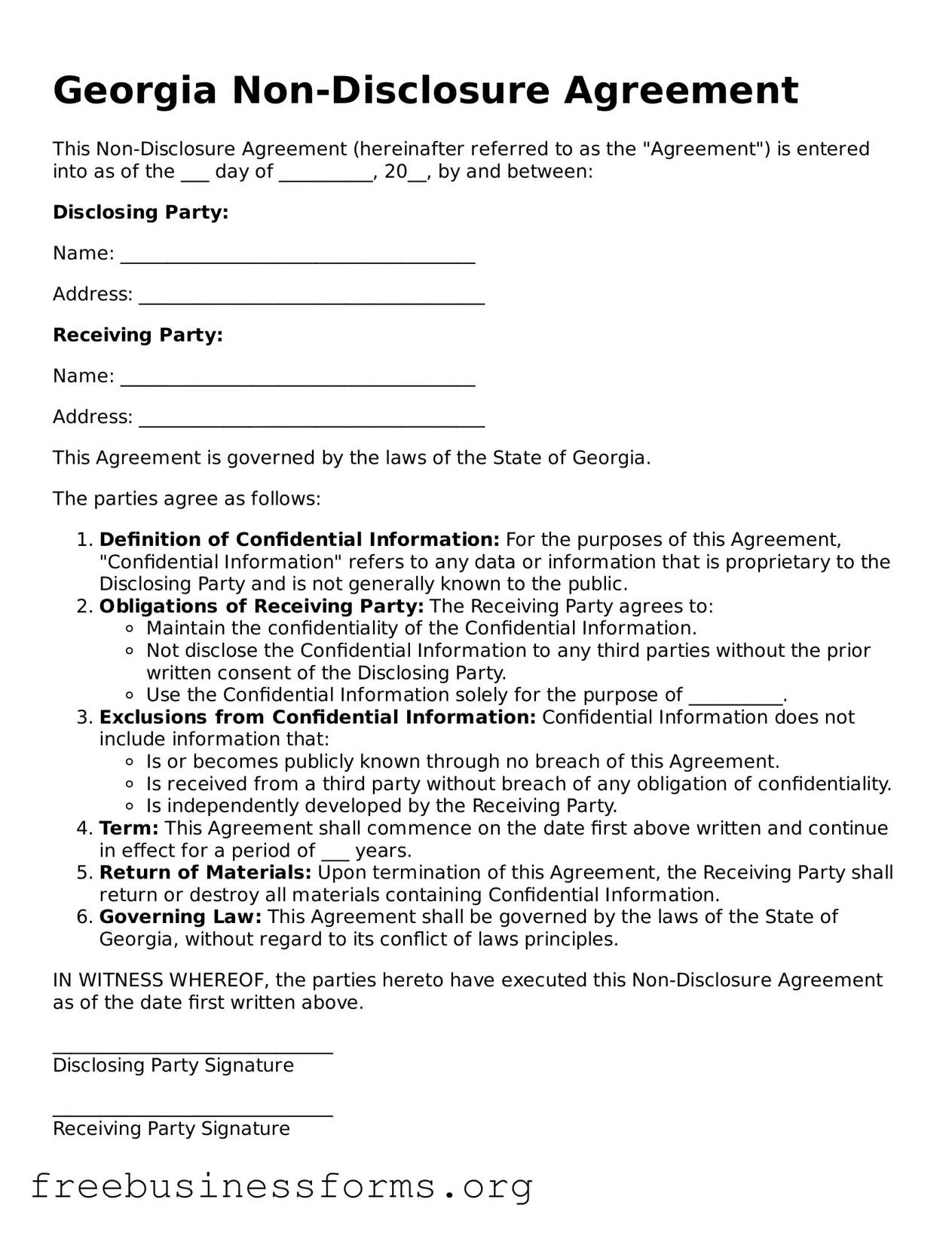Blank Non-disclosure Agreement Template for Georgia
A Georgia Non-disclosure Agreement (NDA) is a legal contract designed to protect confidential information shared between parties. This form ensures that sensitive data remains private and is not disclosed to unauthorized individuals. By signing an NDA, parties can foster trust and collaboration while safeguarding their proprietary information.
Open Form Here

Blank Non-disclosure Agreement Template for Georgia
Open Form Here

Open Form Here
or
↓ PDF File
Quickly complete this form online
Complete your Non-disclosure Agreement online quickly — edit, save, download.